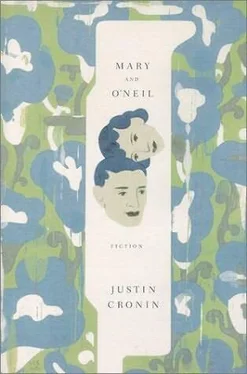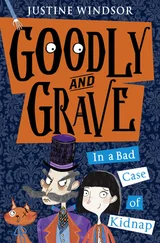“Was I?” O’Neil laughed and sipped his coffee; he didn’t know.
“Forty years old,” another said, shaking his head. He was a young man, just a few years out of college, who had joined the faculty a year ago. He had spent his summer teaching sailing on the coast of Maine, and was as brown as a shot of scotch.
“It’s not so bad,” O’Neil reassured him.
The young man helped himself to a cookie off the tray. “I don’t know about you, but I’d want to go hang myself.” He lifted his face and smiled so everyone could see he was joking. An embarrassed titter ran through the room.
“Trust me,” O’Neil said. “You won’t feel like that at all.”
The bell rang; off they went to class, sliding into the river of students that flowed through the hallways. Clanging lockers, books, and backpacks strewn everywhere-huge piles of them, heaped under stairways and in every open corner-the urgent din of voices, the girls erupting in shrieks, the boys croaking and wailing: it was like stepping into chaos itself. Let’s hurry it up now, O’Neil heard himself saying. They darted from his path like minnows in the shallows. Let’s move it along, people. How like a teacher, he thought.
His ninth graders were studying the Odyssey. It was, by the standards of the school, a rite of passage; his department chair liked to say that students at the academy had been reading it since the Trojan War itself. Even in the lower grades the students spoke of this task like a terrible fate that awaited them all. The Odyssey! they cried. All of it! It’s, like, a thousand pages long! And yet most of them came to like it, even as they refused to admit this. War, magic, adultery, ruination, betrayal; nymphs and cyclopses and men turned into pigs; a long trip and the yearning for home. What was it, in the end, but a metaphor for the trials of growing up? They had read to Book Eleven, “A Gathering of Shades,” in which Odysseus and his men, blown to a dark and nameless shore by Circe, queen of Aeaea, filled a trench with blood to summon forth the spirits of the dead.
“What are we seeing here?” he asked them. “Is Circe doing him a favor, or not?”
Half a dozen hands went up. “It’s like Odysseus is getting another chance,” a girl said. “Tiresias tells him everything that’s going to happen to him, so he can avoid it. It’s like he’s reading Cliff Notes.” She smiled. “Like he’s cheating on a test.”
Others disagreed; one boy, a passionate rationalist, thought it was a dirty trick.
“What good can it do him?” he asked. “How can it help you to see the future, if you can’t change it?”
“Well, that’s just the question,” O’Neil said. “What do you think? Is the future fixed, or isn’t it?”
The boy was immovable. “The future is what it is,” he said.
The discussion was spirited; they moved through the text line by line. As the end of the period neared they came to the part where Odysseus was approached by the ghost of his mother. Though he had taught the book a dozen times, this scene remained, for O’Neil, a moment of the deepest poignancy-the great hero, so full of arrogance, reduced to a childlike yearning for his mother’s touch. He rose, took his copy of the book from his desk, and read these lines to them:
I bit my lip
rising perplexed, with longing to embrace her,
and tried three times, putting my arms around her,
but she went sifting through my hands, impalpable
as shadows are, and wavering like a dream.
Wavering like a dream. O’Neil stopped, the book cradled in his hand; he knew what was about to happen. All along he had hoped it would happen when he was alone, or else with Mary. He entered an interval of time that felt suspended, and in that instant he found he was at once aware of who and where and when he was-the physical parameters of his consciousness-and all the weeks and months that had brought him to this moment: the planes and airports and rental cars, the long white hours of the hospital, the jaws of the open moving van. He knew that soon he would begin to cry, and that the force of it would blind him. He would cry and cry and cry, and struggle for breath like a man who was dying, until another moment came when the tears separated on the surface of his eyes, and he would see again-see the world through tears. He felt all this coming toward him, a rumbling in the hills above, and then it did, more powerfully even than he had imagined it. His hands found the table so he would not fall.
“Mr. Burke, what’s wrong-”
“Shut up, idiot,” someone said. “Didn’t you hear? His sister died.”
His children: why had he thought they would not know? Of course they would know. And then he realized: everyone knew. They had only been waiting for him to tell them. The bell was ringing, but he sensed no stirring, no familiar shuffling of feet or papers or books. No one moved. Others would come-the changing period was moments away-but then he heard the sounds he longed for: the shade being drawn over the small square window, and the quietly locking door.
“Shhhh,” a small voice said, and he felt their hands upon him. “It’s all right.”
His children were around him. They had sealed themselves away. The moment would pass, but until it did, no one was going anywhere.
The author wishes to express his gratitude to the following:
Susan Kamil and Carla Riccio; Ellen Levine; Stephen Kiernan and Susan Chernesky; Andrea McGeary, M.D.; Students 1-7; The Pennsylvania Council on the Arts; the College of Arts and Sciences of La Salle University; The MacDowell Colony; and K.M., for the inspiration of her courage.

Born and raised in New England, Justin Cronin is a graduate of Harvard University and the Iowa Writers’ Workshop. Awards for his fiction include the Stephen Crane Prize, a Whiting Writers’ Award, and a Pew Fellowship in the Arts. He is a professor of English at Rice University and lives with his wife and children in Houston, Texas.
***















